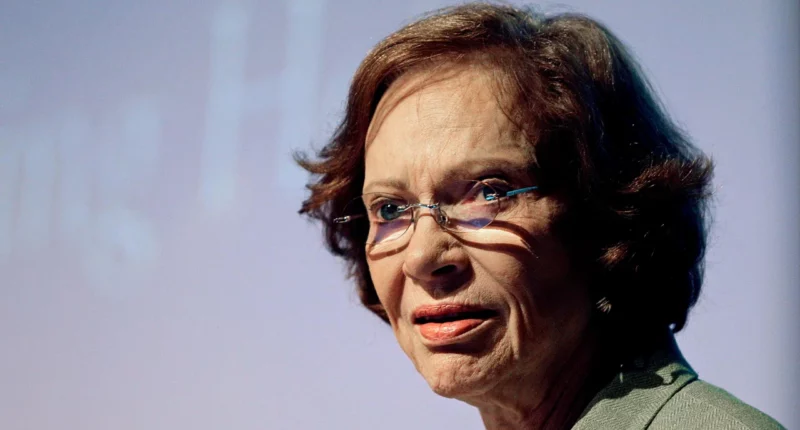This week marks a moment to honor and remember former first lady Rosalynn Carter—a staunch advocate, an unwavering partner, and a humanitarian. Personally, I’m paying tribute to her remarkable lifetime commitment to transforming mental health advocacy, which has directly influenced individuals like me grappling with mental health challenges daily.
Carter’s journey in mental health advocacy began in 1960s Georgia. She took on the monumental task of addressing the stigma and resource deficiencies in mental health support. As first lady in 1977, she championed mental health, notably establishing the President’s Commission on Mental Health. Her initiatives led to amplified research funding, broader treatment accessibility, and innovative approaches to mental healthcare.
Her efforts succeeded in drawing critical attention to the issue, emphasizing that mental health is as treatable as any physical ailment. For many of us coping with depression, anxiety, or other mental health issues, Carter’s advocacy served as a guiding light—a reminder of solidarity and the available support.
However, despite Carter’s impactful efforts in reducing stigma, the pervasive nature of mental health disorders persists.
Recent research led by Harvard Medical School and the University of Queensland revealed that half of the world’s population will grapple with at least one mental health disorder by age 75. This insight stems from extensive surveys across 29 diverse countries, highlighting the widespread prevalence of these conditions globally.
The staggering economic impact of mental health disorders, estimated by the World Health Organization to result in 12 billion lost workdays and a $1 trillion productivity loss annually, underscores the profound personal and societal implications. As a 40-year-old Cuban American navigating depression since age 13, I’ve witnessed firsthand the human cost of these invisible struggles.

Following my mother’s passing in 2019, I faced my own mental health crisis, attempting suicide and undergoing brief hospitalization. Over the past five years, I’ve diligently managed my depression through therapy, medication, and meditation. Despite these efforts, my illness continues to profoundly affect my life—a rollercoaster between seemingly controlled days and moments of immense struggle.
Dealing with persistent judgment and misunderstanding about my condition has been one of the most challenging aspects. Loved ones have inadvertently wielded hurtful terms like “crazy,” perpetuating outdated stereotypes about mental health. The ongoing battle to combat these misconceptions often feels draining and isolating.
Some have dismissed my struggles with misguided advice like “just get over it,” failing to understand the complexity of mental health battles. This attitude, if not corrected, perpetuates stigma and deters individuals from seeking vital help.
My own journey has heightened my awareness of the dire need for comprehensive mental health care. This urgency aligns with Carter’s lifelong commitment to better mental health outcomes.
While strides have been made in reducing stigma, there’s an ongoing necessity for more progress.
I am immensely grateful for Rosalynn Carter’s relentless dedication. We must collectively build upon her legacy by amplifying awareness, improving treatment access, and nurturing understanding and empathy. As Carter aptly said, “If only we could consider mental illnesses as straightforwardly as we do physical illnesses, those affected could seek help and be treated in an open and effective way.”





